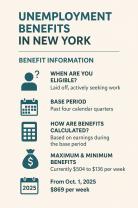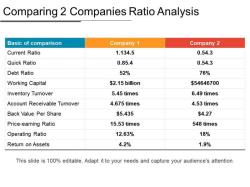When is tax due on Series EE Savings Bonds?
Tax on Series EE Savings Bonds is due in one of the following situations:
When the Bond Matures: Series EE Savings Bonds have a final maturity period of 30 years. You can choose to cash in the bond at any time after 12 months. When you redeem the bond, you'll owe federal income tax on the interest that has accrued up to that point.
When You Stop Earning Interest: If you hold a Series EE Savings Bond for the full 30-year term, it will stop earning interest at that point. At that time, you must either redeem the bond or report the accrued interest for tax purposes. This is also known as the "30-year rule."
When You Redeem the Bond: If you cash in your Series EE Savings Bond before it reaches maturity, you'll owe federal income tax on the interest it has earned up to that point. The interest may be subject to federal income tax but is generally exempt from state and local taxes.
Annually for Savings Bonds Held in an Educational Savings Account: If you're using Series EE Savings Bonds for educational purposes and they're held in an Educational Savings Account (ESA), you may be eligible to exclude the interest from federal income tax when you redeem the bonds for qualified education expenses. If you don't use the bonds for educational expenses, you'll need to report the interest on your tax return for the year in which you redeem the bonds.
In Case of Death: If you inherit Series EE Savings Bonds, you may have to pay federal income tax on the accrued interest, either when you redeem the bonds or when they reach final maturity, depending on how the estate was settled.
It's important to keep records of your Series EE Savings Bond purchases, including the issue date and purchase price, to calculate the interest earned and report it accurately when it comes time to pay taxes. You may also want to consult a tax professional or the IRS guidelines to ensure you fulfill your tax obligations correctly based on your individual situation. Additionally, the tax treatment of savings bonds can change, so it's a good idea to stay informed about any updates in tax laws and regulations.
Tax Due on Series EE Savings Bonds: When and How to Report
Interest earned on Series EE savings bonds is subject to federal income tax, but it is not subject to state or local income tax. You can choose to report the interest income annually or when you redeem the bonds.
If you choose to report the interest income annually, you must include the accrued interest in your taxable income each year, even if you haven't redeemed the bonds yet. To calculate the accrued interest, you can use the Treasury Department's EE Savings Bond Calculator.
If you choose to report the interest income when you redeem the bonds, you must include the full amount of interest earned in your taxable income for the year in which you redeem the bonds.
Navigating Tax Obligations for Series EE Savings Bond Holders
Here are some tips for navigating your tax obligations as a Series EE savings bond holder:
- Keep track of your bond purchases and redemptions. This will help you to calculate the interest earned and to determine when you need to report the interest income.
- Choose a reporting method that works best for you. If you expect to be in a higher tax bracket in the future, it may be advantageous to report the interest income annually. If you expect to be in a lower tax bracket in the future, it may be advantageous to report the interest income when you redeem the bonds.
- Be aware of the tax-advantaged educational uses of Series EE bonds. If you use the proceeds from redeemed bonds to pay for qualified education expenses, you may be able to exclude the interest income from your taxable income.
- File your taxes accurately and on time. If you have any questions about your tax obligations, consult with a tax professional.
Reporting Interest Income and Tax Implications
To report interest income from Series EE savings bonds, you must file Form 1040, U.S. Individual Income Tax Return. You will report the interest income on Schedule B, Part I of Form 1040.
If you are reporting the interest income annually, you must include the accrued interest in your taxable income each year, even if you haven't redeemed the bonds yet. To calculate the accrued interest, you can use the Treasury Department's EE Savings Bond Calculator.
If you are reporting the interest income when you redeem the bonds, you must include the full amount of interest earned in your taxable income for the year in which you redeem the bonds.
Tax-Advantaged Educational Uses of Series EE Bonds
If you use the proceeds from redeemed Series EE savings bonds to pay for qualified education expenses, you may be able to exclude the interest income from your taxable income. Qualified education expenses include tuition, fees, books, and supplies for post-secondary education.
To qualify for the exclusion, you must meet the following requirements:
- You must be the owner of the bonds.
- You must be the beneficiary of the bonds.
- You must use the proceeds from the bonds to pay for qualified education expenses for yourself, your spouse, or your dependent.
Tax Filing and Compliance for EE Savings Bond Owners
As a Series EE savings bond owner, you are responsible for filing your taxes accurately and on time. If you have any questions about your tax obligations, consult with a tax professional.
Here are some tips for tax filing and compliance for EE savings bond owners:
- Keep track of your bond purchases and redemptions. This will help you to calculate the interest earned and to determine when you need to report the interest income.
- Choose a reporting method that works best for you. If you expect to be in a higher tax bracket in the future, it may be advantageous to report the interest income annually. If you expect to be in a lower tax bracket in the future, it may be advantageous to report the interest income when you redeem the bonds.
- Be aware of the tax-advantaged educational uses of Series EE bonds. If you use the proceeds from redeemed bonds to pay for qualified education expenses, you may be able to exclude the interest income from your taxable income.
- File your taxes accurately and on time. If you have any questions about your tax obligations, consult with a tax professional.













